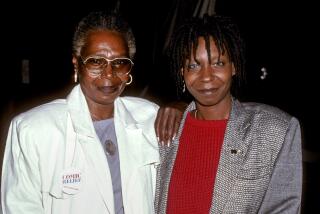To the Land of the Cattails by Aharon Appelfeld; translated by Jeffrey M. Green (Weidenfeld & Nicolson: $14.95; 148 pp.)
This is not the simple book it seems. Toni, a pretty divorcee, and Rudi, her adolescent son, move through an Eastern European landscape toward Toni’s girlhood home, the village of Dratscincz.
Jewish Toni, “moth to the flame,” married a tall, handsome Gentile. When they arrived in “Schoenburg” (‘Beautiful city”), not far from Vienna, he “removed the mask,” and beat her, even when she was pregnant. Then there were years of lovers, years of maids to mind the child. (“Where is Mommy?” little Rudi asks.) Finally a gentleman’s bequest provides for them.
Now Toni wants to go home. She must see her parents; they must meet her son; Rudi must learn something of his heritage, of the “redemptive” religion of the Jews. In the summer of 1938, mother and son travel east, away from cities and civilization, even away from civility, into remote and rusticated provinces.
Toni and Rudi are going to a place too good to be true, “. . . a distant region named Bukovina, where there are plains and woods and cattails, windmills and sawmills, and on its great river, the Prut, barges sail to the great sea. In that vast region there is a little village full of light, and its name is Dratscincz, and there his grandfather and grandmother dwell.”
The journey is long--boring, really. Once they dine on the balcony of an inn: “As if by magic the balcony, surrounded by green vines, evoked old, provincial times in which a person could wrap himself, as in a sheepskin coat, and doze off.” Toni shudders: “To be here for 20 years and not to budge . . . .”
Toni and Rudi move with ease and then with difficulty through ever-less-pleasant country, past the book-strewn ruins of Jews’ houses. Their choices (on every journey there are infinite choices) are all wrong.
The author’s choices (his also infinite) seem wrong, too: So many yokels, so many inns, so many statements not-quite-right. As, “. . . Maya chuckled, and all her heavy limbs laughed with her,” or, the horses “devoured the road as if they had sprouted wings,” or, “Forest winds stirred from their lairs and flooded the street.” Terrible. Stuff you might write in your sleep.
Yet there is something--a certain tension. The light-filled village recedes; the journey seems to lengthen. Not far from this freakish territory, in the beautiful city of Prague, Franz Kafka wrote, “There is a goal, but no way . . .” The Jews of Dratscincz and every other village in this hinterland are sent by train on journeys of their own. Those left behind in station waiting rooms are hopeful that trains will come for them soon. Toni is among the missing.
If the task of the novelist is to create a believable version of reality, what is the task of the novelist when reality is itself beyond belief? Appelfeld’s answer is a book which is a metaphor. The imagery is that of dreams and nightmares, part rational and lucid, part menacing. So the crude prose, the laughing limbs and flying horses, come from utter darkness.
This book generates unease disproportionate to what it says. That is because we are aware of the course of modern history. We read between the lines. Thomas Flanagan, writing about Appelfeld’s novel “Badheim 1939” in The Nation, said, “We have known from the first pages what will happen . . . but it is a knowledge which we impose upon the text, and the text exists therefore as a kind of double-writing.”
In a railroad station in pine woods, “an old man of antiquated elegance” kindly brews coffee for those who wait. Coffee is the beverage of conversation, of civilization and of life, a drink which quickens the pulse, the stimulant that Toni craved. It is reviving. Rudi thanks the gentleman: “Your coffee brought us all back to life again.”
That is the challenge Appelfeld has set himself: To bring them back; to remember them. In deepest night, in the waiting room of that remote station, young Rudi watches. “It was painfully clear that all those little lights, the shadows and the faces, would stay with him for many years, even when he was far away, on another continent.”
More to Read
Sign up for our Book Club newsletter
Get the latest news, events and more from the Los Angeles Times Book Club, and help us get L.A. reading and talking.
You may occasionally receive promotional content from the Los Angeles Times.






